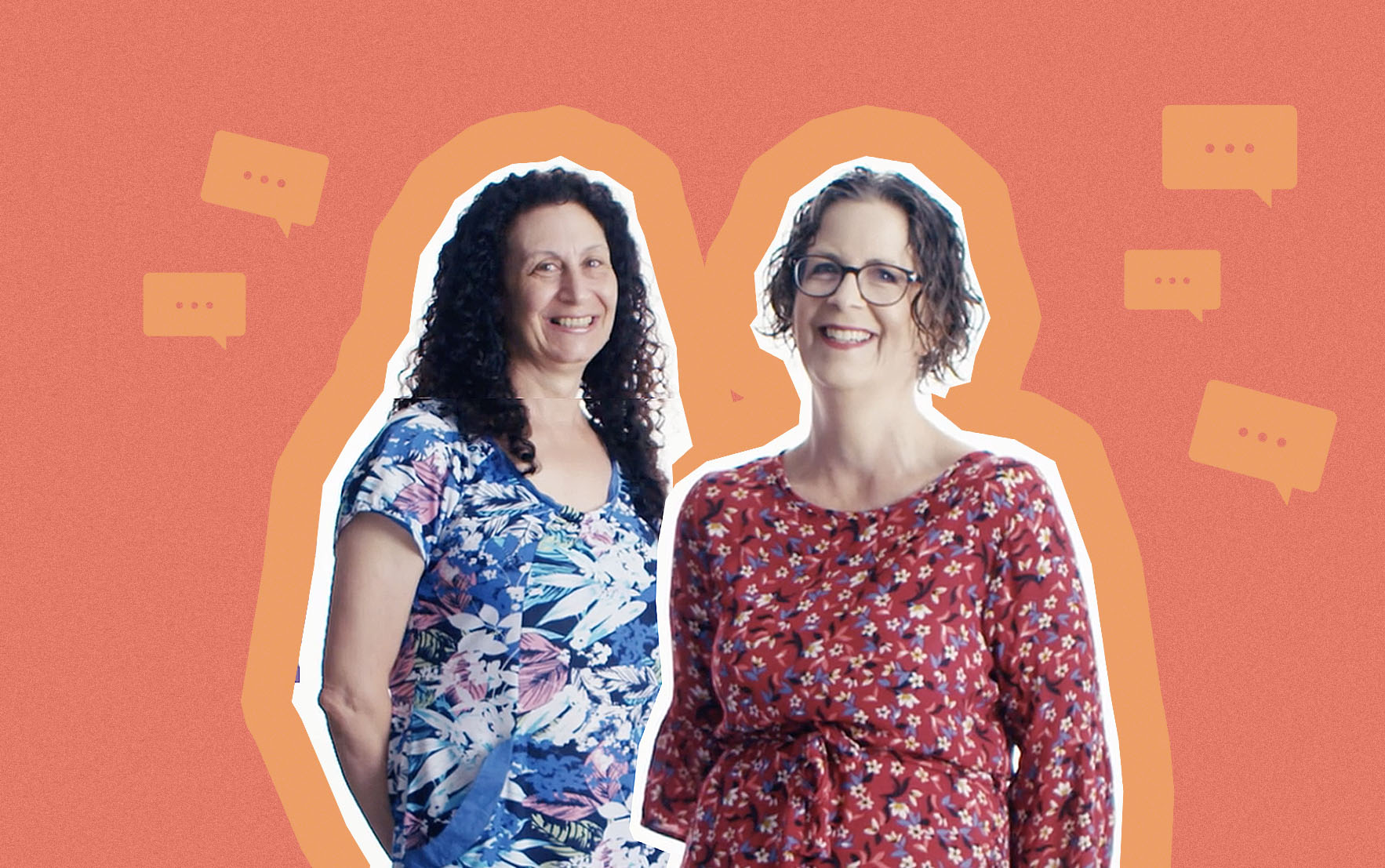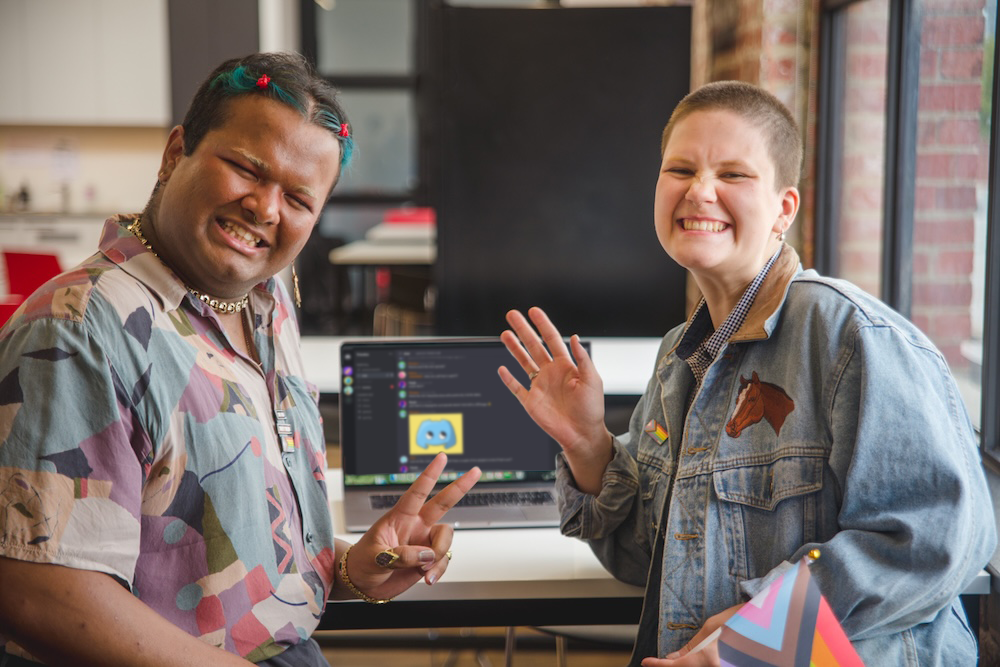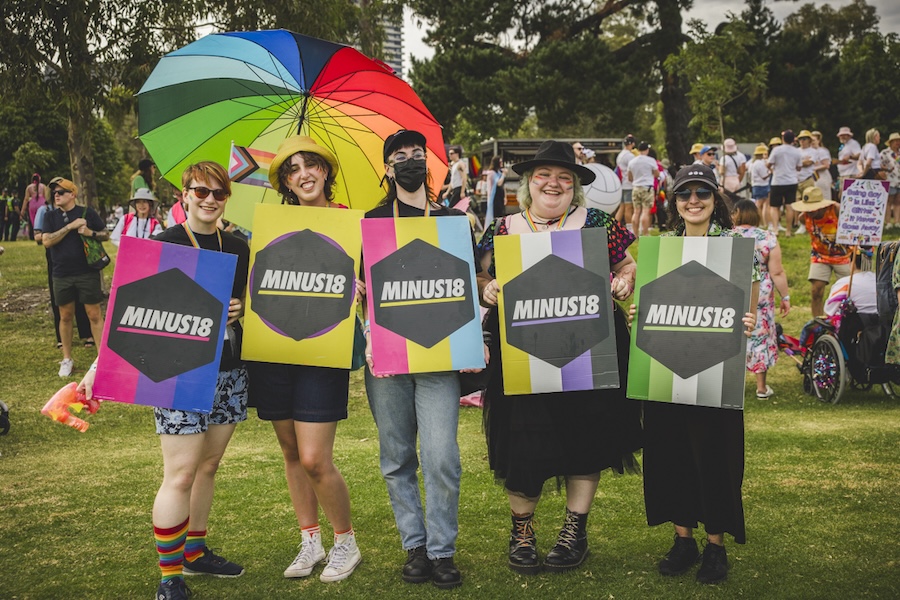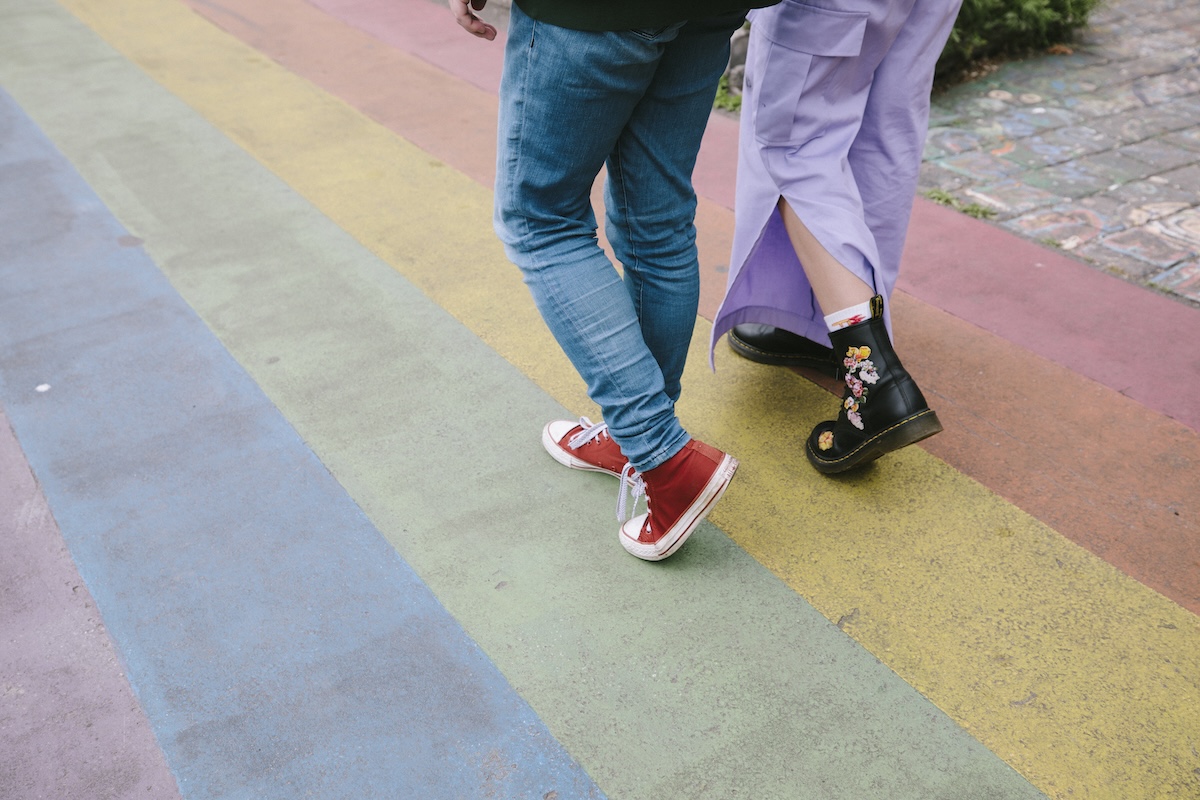
What to do if you think your child might be LGBTQIA+
September 05, 2023
Ways to look out, and signal your support.
Minus18 supports LGBTQIA+ youth all over Australia. Resources, professional training, student workshops, and online campaigns. But there’s one part of the community in particular that we receive a huge amount of questions from, and who come to Minus18 looking for information and support: parents of LGBTQIA+ young people.
We’re so glad to reveal these new online resources for parents: four videos and four accompanying articles, all about supporting your child (and the community!).
Having the sense that your child might be LGBTQIA+ can be a new experience, which can come with questions or concerns about what this means for them or your family.
1. “Coming out” can happen at any age
There’s no one way to be queer, and someone’s identity can evolve over time. After all, no one’s the same person at 30 as they were at 10! So it’s important to note that many LGBTQIA+ people can realise their identity – or at least a part of their identity – at a very young age, and that their identity can change. And as a result, people can come out multiple times in their lives!
Everyone’s journey is different, and coming out can occur at any age. Some LGBTQIA+ people realise their identity as early as primary school, while some people don’t realise or feel comfortable sharing their identity well into the later years of their life.
The important thing to remember, is that a person’s identity is up to them. Try to avoid assumptions based upon how they act or talk – unless they tell you, you likely don’t know for sure.
“(Our daughter) announced it to her classmates before she announced it to us. She told her class when she was seven, so in grade one, that she wanted to be a girl. We just talked about it over the years, and then when she got to her tenth birthday she decided that she was sick of living a lie and wanted to be with her as a girl.” Tara
2. Give them space, they might need time to figure it out
Sexuality or gender identity can take a while to figure out, especially if you’re young and lacking the vocabulary or knowledge to flesh it out. Your child might want to chat about it one day, then refuse the next day.
If they need a little bit of space, that’s okay! Just remember to signal your support of them.
3. Read LGBTQIA+ articles to stay up to date – especially if they give that content to you!
Brushing up on your knowledge of LGBTQIA+ identities will help give you the tools and knowledge to support your child if they do come out to you. This is a perfect time to brush up on your knowledge of LGBTQIA+ identities. You can use Google to find guides and information, or check out some of the handy articles available on Minus18.
Make an effort to begin educating yourself, especially if that content is suggested by your child. In fact, this is a tip we often give to young people when broaching the subject – giving your parents or family articles to read can be a good way to test the waters. Actively reading, and engaging with that content immediately signals to your child that you support them and their identity.
“If they ask you to read a book or a piece of material or watch something, please do! It really does help, and helps to get an understanding of what they're going through.” – Felix
4. Signal your support of them and LGBTQIA+ identities
While you’re giving space to your child to figure out their own identity, there are ways you can help them feel more comfortable. Signalling your support of the LGBTQIA+ community can help feel confident that you’ll be also supportive of them.
If your child brings up LGBTQIA+ issues or identities, respond positively and respect what they’re saying.
You could also make positive and supportive comments when you see an LGBTQIA+ story on the news, or a plot in a TV show or movie.
- “Isn’t it great to see so much representation in the movies now.”
- “Wow, Schitt’s Creek really does nail this LGBTQIA+ storyline!”
- “This is a really important news story, I’m glad it’s getting the attention it deserves.”
And of course, this can apply to anything in your life that might be relevant. Interesting Lunch n’ Learn at work featuring a LGBTQIA+ speaker? Your office getting involved in IDAHOBIT? Mention it positively and get chatting!
“I had absolutely no idea before she came out that my daughter was gay! She had been talking about sexuality and gender issues for a while as some of her friends in her class were exploring issues of sexuality and gender. Looking back, I can see she was testing the waters and I am so grateful that my husband and I had made it clear that we were supportive.” – Cheryl
5. Don’t assume it’s going to be difficult
Just about every parent we chatted while creating these resources had one experience in common: that as parents, you want to look after your children, and protect them from harm. It’s universal!
It can be easy to assume, and fear, that being a part of the LGBTQIA+ community means your child’s going to have a tough time. After all, that’s what some movies, TV shows and the news have told us for years. But loads of things have changed and, while individual experiences vary wildly, by no means is your child destined for hardship.
You might have your child’s best interests at heart, but remember not to dismiss or reject their experience. Similarly, don’t tell them that their life will be difficult, and plant that expectation in their mind.
Positivity is key, and your respect and support will do absolute wonders. You’re reading this article, so you’re already off to a great start!
Check out the rest of the series:
WHAT TO DO WHEN YOUR CHILD COMES OUT TO YOU
HOW TO EDUCATE YOURSELF AND YOUR FAMILY WHEN YOUR CHILD IS LGBTQIA+
HOW TO SUPPORT AND CELEBRATE YOUR LGBTQIA+ CHILD
These articles and videos are a collaboration between Minus18 and Disney, celebrating the diversity of families and their journeys within the LGBTQIA+ community.
Production by Clothesline Content
Related articles

From December 10, big changes are coming for anyone in Australia under 16. Here's how we'll support you to remain connected with your community.

Trans Day of Remembrance is an important opportunity to honour those who have lost their lives to transphobic violence, and take a stand against transphobia.

Labels can be comforting – a way to find people who understand you, and proof that you’re not alone. But it's also okay if you're still figuring it out.

Uncertainty can be beautiful. Being “in-between” labels, between versions of ourselves, is part of life.